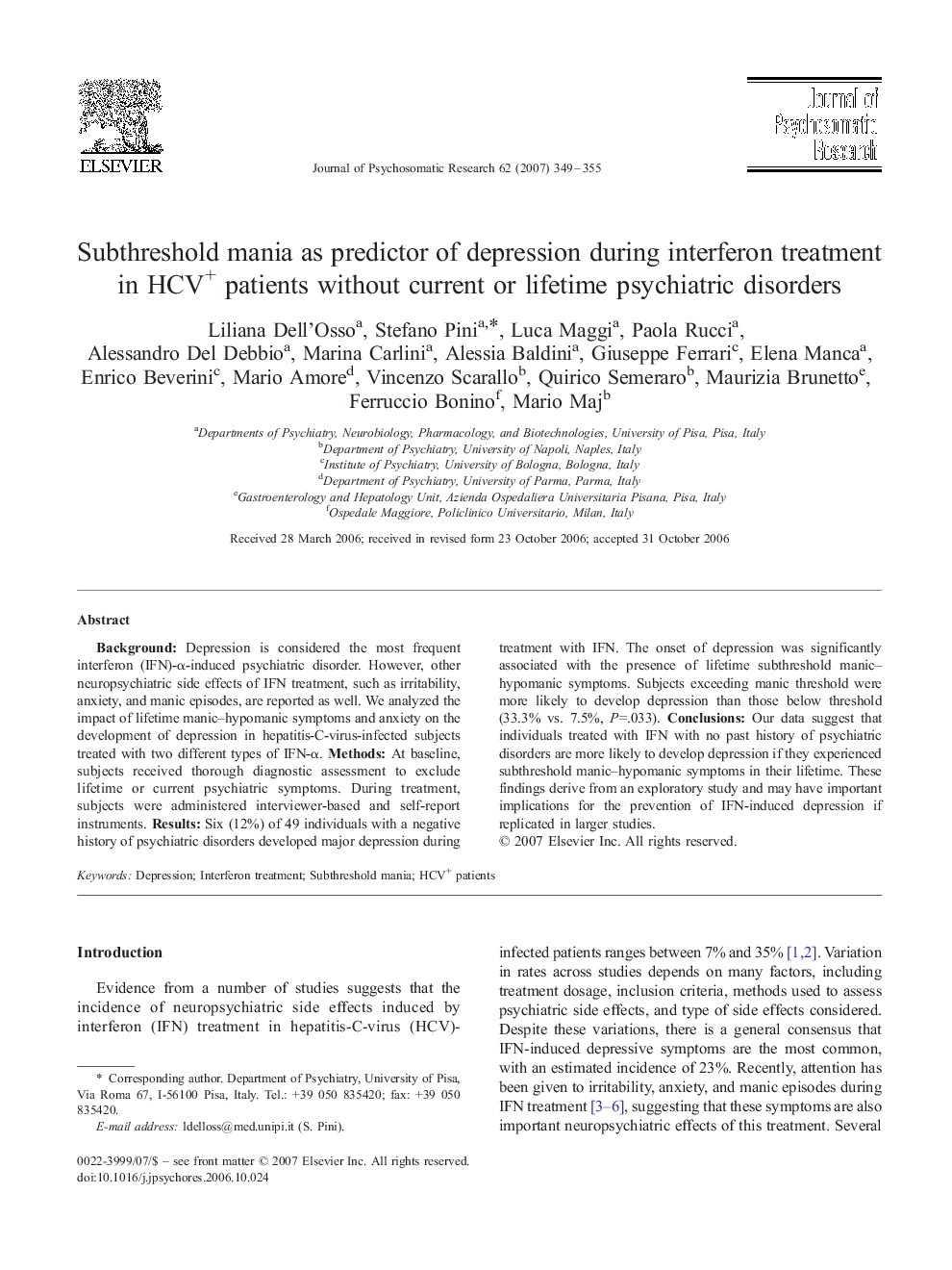| Article ID | Journal | Published Year | Pages | File Type |
|---|---|---|---|---|
| 950343 | Journal of Psychosomatic Research | 2007 | 7 Pages |
BackgroundDepression is considered the most frequent interferon (IFN)-α-induced psychiatric disorder. However, other neuropsychiatric side effects of IFN treatment, such as irritability, anxiety, and manic episodes, are reported as well. We analyzed the impact of lifetime manic–hypomanic symptoms and anxiety on the development of depression in hepatitis-C-virus-infected subjects treated with two different types of IFN-α.MethodsAt baseline, subjects received thorough diagnostic assessment to exclude lifetime or current psychiatric symptoms. During treatment, subjects were administered interviewer-based and self-report instruments.ResultsSix (12%) of 49 individuals with a negative history of psychiatric disorders developed major depression during treatment with IFN. The onset of depression was significantly associated with the presence of lifetime subthreshold manic–hypomanic symptoms. Subjects exceeding manic threshold were more likely to develop depression than those below threshold (33.3% vs. 7.5%, P=.033).ConclusionsOur data suggest that individuals treated with IFN with no past history of psychiatric disorders are more likely to develop depression if they experienced subthreshold manic–hypomanic symptoms in their lifetime. These findings derive from an exploratory study and may have important implications for the prevention of IFN-induced depression if replicated in larger studies.
